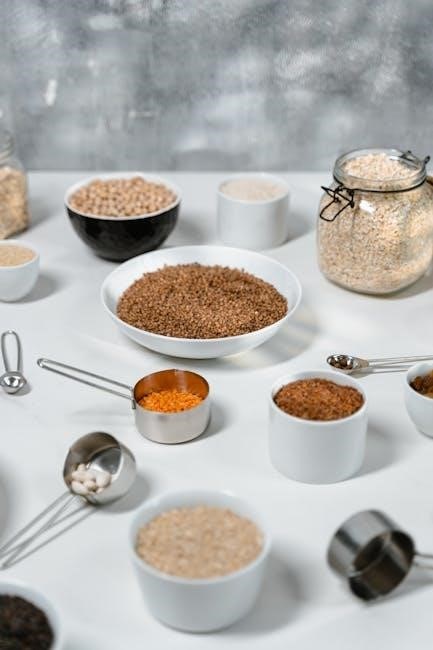Lean bulking is a strategic approach to gaining muscle mass while minimizing fat accumulation․ It combines proper nutrition, training, and consistency to achieve a lean, athletic physique;
1․1 What is Lean Bulking?
Lean bulking is a dietary and training strategy focused on gaining muscle mass while keeping body fat low․ It involves consuming a caloric surplus with nutrient-dense foods, emphasizing protein, carbohydrates, and healthy fats․ This approach prioritizes quality over quantity, ensuring muscle growth without excessive fat gain․ A typical goal is to gain 0․5-0․75 pounds per week, maintaining a lean physique throughout the process․ It’s ideal for those seeking athletic performance and aesthetic goals without compromising health or appearance․
1․2 Benefits of a Lean Bulk Meal Plan
A well-structured lean bulk meal plan offers numerous benefits, including controlled muscle growth, reduced fat gain, and improved overall health․ It ensures a balanced intake of macronutrients, optimizing energy levels and recovery․ By focusing on nutrient-dense foods, it supports hormone production and muscle repair; Additionally, a lean bulk plan minimizes the risk of excessive fat accumulation, allowing for a more aesthetic and functional physique․ It also provides flexibility to adjust based on individual goals and activity levels, making it a sustainable approach for long-term muscle development․

Understanding Caloric Intake for Lean Bulking
Understanding caloric intake is crucial for lean bulking, requiring a slight surplus to support muscle growth while minimizing fat gain․ It involves calculating needs, balancing macronutrients, and avoiding excess․
2․1 Calculating Daily Caloric Needs
Calculating daily caloric needs involves assessing basal metabolic rate (BMR), activity level, and goals․ A lean bulk typically requires a surplus of 250-500 calories above maintenance․ This ensures muscle growth without excessive fat gain․ Tools like the Harris-Benedict or Mifflin-St Jeor equations can estimate BMR, which is then adjusted for activity․ For example, a moderately active person might consume 2,500-2,800 calories to support lean gains․ Precision is key to avoid under or overeating, ensuring steady progress toward muscle-building objectives․
2․2 The Importance of Caloric Surplus
A caloric surplus is essential for muscle growth during a lean bulk․ It provides the energy needed for muscle repair and hypertrophy․ Without sufficient calories, the body cannot build new tissue․ Aiming for a modest surplus (250-500 calories) ensures steady gains while minimizing fat storage․ This balance supports anabolic processes, helping you maintain muscle mass and strength․ Consistency in maintaining this surplus is crucial for long-term progress and achieving a lean, muscular physique․
2․3 Avoiding Excessive Fat Gain
Avoiding excessive fat gain is crucial for a lean bulk․ While a caloric surplus is necessary, consuming too many calories leads to fat accumulation․ Tracking macronutrient intake and maintaining a clean diet helps ensure that weight gain is primarily muscle․ Monitoring weekly weight gains and adjusting intake prevents excessive fat storage․ Staying within a 0․5-0․75 pound weekly gain supports a lean physique without compromising muscle growth․ This approach requires discipline but yields optimal results for long-term health and performance․
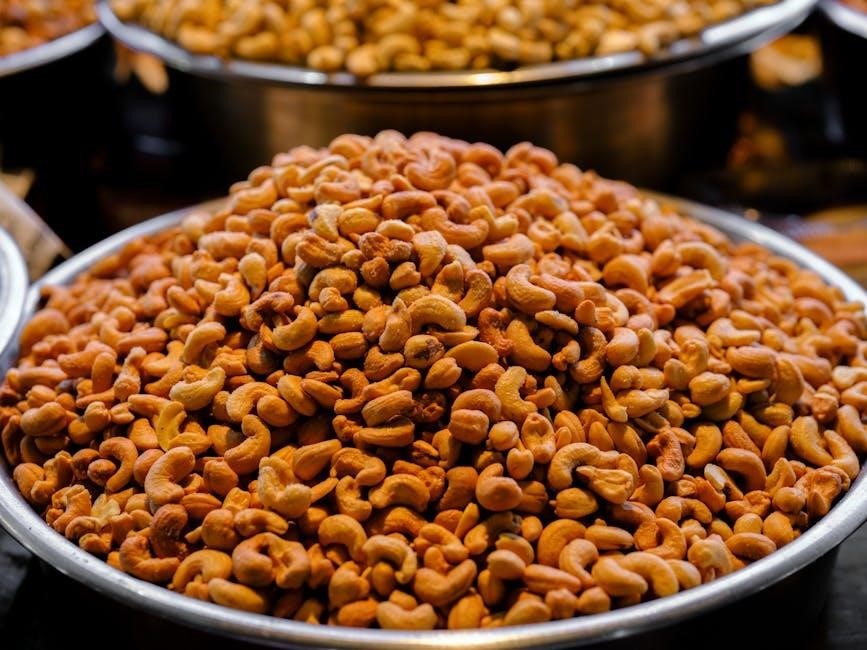
Macronutrient Breakdown for Lean Bulking
Balancing protein, carbohydrates, and fats optimizes muscle growth while maintaining leanness․ Protein builds muscle, carbs fuel workouts, and fats support hormones, ensuring sustainable gains․
3․1 Protein Requirements
Adequate protein intake is crucial for muscle growth during lean bulking․ Typically, 1․2-2․2 grams of protein per kilogram of body weight is recommended․ High-quality sources like chicken breast, fish, eggs, and whey protein are ideal․ Protein helps repair and build muscle fibers, preventing muscle loss and supporting recovery․ Including a source of protein in every meal ensures consistent amino acid availability, promoting muscle synthesis and overall progress․ Adjust protein intake based on individual goals and activity levels to optimize results․
3․2 Carbohydrate Intake for Energy
Carbohydrates are the primary energy source for workouts and muscle recovery․ Complex carbs like whole grains, oats, and vegetables provide sustained energy levels․ Simple carbs, such as fruits, are ideal for quick energy boosts․ Aim for 2-3 grams of carbs per kilogram of body weight daily, focusing on whole food sources to avoid excessive sugar intake․ Proper carb intake supports muscle glycogen replenishment, ensuring optimal performance and recovery․ Balancing carbs with protein and fats helps maintain a lean physique while fueling muscle growth․
3․3 Healthy Fats for Hormone Support
Healthy fats are essential for hormone production, particularly testosterone, which drives muscle growth․ Sources like avocados, nuts, seeds, olive oil, and fatty fish provide omega-3 and omega-6 fatty acids․ These fats support cell function and hormone balance․ Aim for 0․5-1 gram of healthy fats per kilogram of body weight daily․ Balancing fat intake ensures sustained energy and optimal hormonal levels, critical for lean bulking․ Excessive fat consumption can hinder progress, so moderation is key to maintaining a lean, muscular physique while supporting overall health․
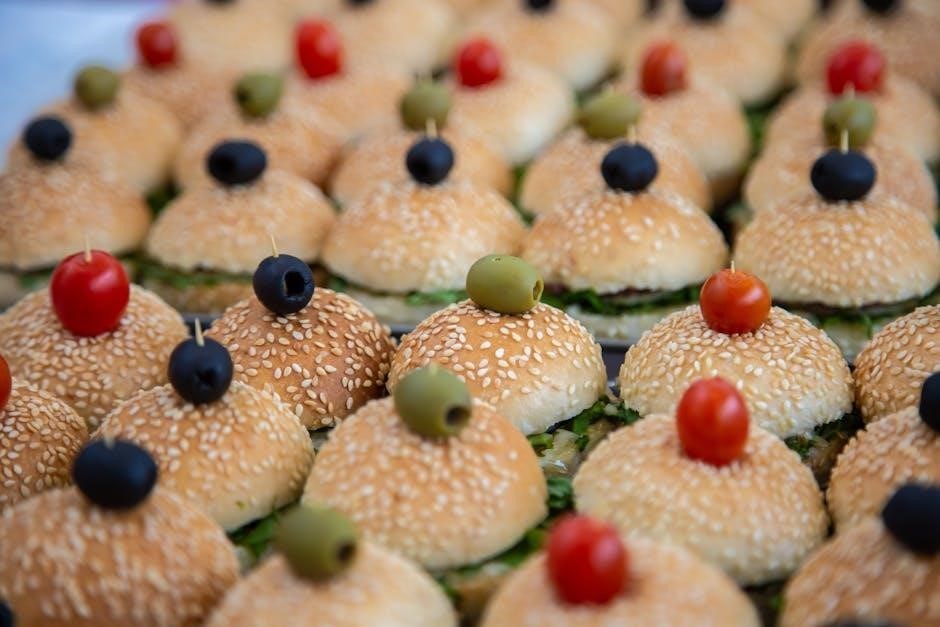
Meal Frequency and Timing
Eating 5-6 meals spaced every 2-4 hours supports metabolism and muscle growth․ Consistent meal timing improves nutrient absorption and maintains energy levels throughout the day․
4․1 Benefits of Multiple Meals
Eating multiple meals throughout the day can enhance metabolism, improve nutrient absorption, and support muscle growth․ By spacing meals every 2-4 hours, individuals maintain stable energy levels, reduce hunger, and prevent overeating․ This approach also keeps muscles in an anabolic state, promoting lean muscle gain․ Additionally, consuming protein-rich meals at regular intervals helps maintain nitrogen balance, which is crucial for muscle repair and recovery․ Overall, a structured meal frequency supports both performance and body composition goals effectively․
4․2 Pre- and Post-Workout Nutrition
Pre-workout meals should include lean proteins and complex carbs for sustained energy․ Post-workout, prioritize protein-rich foods and carbs to replenish glycogen and support muscle recovery․ Supplements like whey protein and creatine can enhance performance and recovery․ Timing is crucial, with meals consumed 1-2 hours pre-workout and within 30 minutes post-workout for optimal results․ Proper hydration and balanced nutrition around workouts are key to maximizing muscle growth and minimizing fatigue during a lean bulk phase․
4․4 Spacing Meals Every 2-4 Hours
Spacing meals every 2-4 hours helps maintain a steady metabolism and prevents excessive hunger․ This approach supports muscle growth by ensuring a consistent supply of nutrients․ For lean bulking, aim for 5-6 meals daily, including main meals and snacks․ Balanced nutrition with protein, carbs, and fats at each meal promotes fat loss and muscle gain․ This schedule also helps avoid overeating and supports a caloric surplus without excessive fat storage, aligning with lean bulking goals․

Foods to Focus On
Focus on lean proteins like chicken, fish, and eggs, complex carbs such as oats and brown rice, and healthy fats like avocados and nuts for sustainable growth․
5․1 Lean Protein Sources
Lean proteins are essential for muscle growth and repair․ Opt for chicken breast, turkey, white fish, lean beef, and egg whites․ Plant-based options include tofu, Greek yogurt, and legumes․ These foods are low in fat and high in protein, supporting muscle synthesis without excess calories․ Incorporating a variety ensures a balanced intake of essential amino acids, crucial for lean bulking․ Aim to include a lean protein source in every meal to maintain muscle anabolism and overall health․
5․2 Complex Carbohydrates
Complex carbs are vital for sustained energy and muscle recovery․ Focus on whole grains like oats, brown rice, and quinoa, as well as vegetables such as broccoli, spinach, and sweet potatoes․ These foods provide fiber, vitamins, and minerals while maintaining low glycemic levels; Incorporating complex carbs supports muscle growth and prevents excessive fat storage․ Aim to balance carb intake with protein and fats to optimize lean bulking results․ These foods are foundational for a balanced and sustainable meal plan․
5․3 Healthy Fats and Supplements
Healthy fats are essential for hormone regulation and recovery․ Include sources like avocados, nuts, seeds, and olive oil in your diet․ Supplements like fish oil support inflammation reduction, while multivitamins ensure nutrient deficiencies are addressed․ Creatine is a popular choice for enhancing strength and muscle endurance․ These components complement your meal plan, promoting overall health and performance without excessive calorie intake․ Prioritize whole food sources but use supplements to fill gaps and optimize results․

Sample 6-Meal Lean Bulk Meal Plan
A structured plan includes 6 balanced meals: high-protein breakfast, mid-morning snack, lunch, mid-afternoon snack, dinner, and pre-bed snack, ensuring steady nutrient intake․
6;1 Meal 1: High-Protein Breakfast
Start your day with a nutrient-dense breakfast, such as high-protein oatmeal or scrambled eggs with whole-grain toast․ Add lean proteins like chicken breast or Greek yogurt for muscle repair․ Incorporate complex carbs like oats or whole grains for sustained energy․ Healthy fats, such as avocado or nuts, support hormone production․ Aim for a balanced mix of macronutrients to kickstart your metabolism and fuel your workouts․ This meal sets the foundation for a day of lean muscle growth and overall health․
6․2 Meal 2: Mid-Morning Snack
A mid-morning snack should provide a boost of energy and support muscle recovery․ Opt for a combination of protein and healthy fats, such as Greek yogurt with mixed berries and a scoop of whey protein․ Alternatively, have hard-boiled eggs or a small serving of mixed nuts․ This snack helps maintain muscle satiety and prevents excessive hunger before lunch․ Keep portion sizes moderate to avoid overconsumption of calories, ensuring you stay on track with your lean bulking goals without compromising fat gain․
6․3 Meal 3: Lunch
Lunch should be a balanced meal that fuels your body for the rest of the day․ Opt for grilled chicken breast, turkey, or lean fish as your protein source․ Pair it with complex carbohydrates like brown rice, quinoa, or sweet potatoes․ Include a variety of steamed vegetables such as broccoli, spinach, or asparagus for essential nutrients․ Ensure portion sizes align with your caloric needs, aiming for a macronutrient breakdown that supports muscle growth․ Avoid excessive sauces or oils to maintain a lean profile, and stay hydrated with water or a low-calorie drink․
6․4 Meal 4: Mid-Afternoon Snack
The mid-afternoon snack is crucial for maintaining energy levels and supporting muscle growth․ Opt for a combination of protein and complex carbohydrates, such as Greek yogurt with berries, a handful of mixed nuts, or a protein smoothie․ You can also include a piece of fruit like an apple or banana for natural sugars and fiber․ Keep portion sizes moderate to avoid excessive calorie intake․ This snack helps bridge the gap between lunch and dinner, ensuring consistent nutrient delivery and preventing muscle breakdown․ Choose nutrient-dense options to stay on track with your lean bulking goals․
6․5 Meal 5: Dinner
Dinner is a key meal for muscle recovery and growth, typically consumed after the mid-afternoon snack․ Focus on lean proteins like grilled chicken, fish, or turkey breast, paired with complex carbohydrates such as brown rice, quinoa, or sweet potatoes․ Include a variety of vegetables like broccoli, spinach, or asparagus for essential nutrients and fiber․ Aim for balanced macronutrients, with a caloric intake that supports your lean bulking goals without overeating․ This meal should provide sustained energy and help replenish muscle stores after a day of training and activity․
6․6 Meal 6: Pre-Bed Snack
The pre-bed snack is designed to support overnight muscle recovery and growth․ Opt for slow-digesting proteins like cottage cheese or casein protein, paired with healthy fats such as almonds or peanut butter․ This combination ensures sustained nutrient delivery without excessive calorie intake․ Keep portions moderate to avoid fat gain, focusing on 200-300 calories․ Avoid sugary or high-carbohydrate foods to maintain a lean bulk․ This final meal of the day helps maintain muscle anabolism while promoting quality sleep, essential for overall recovery and muscle-building goals․
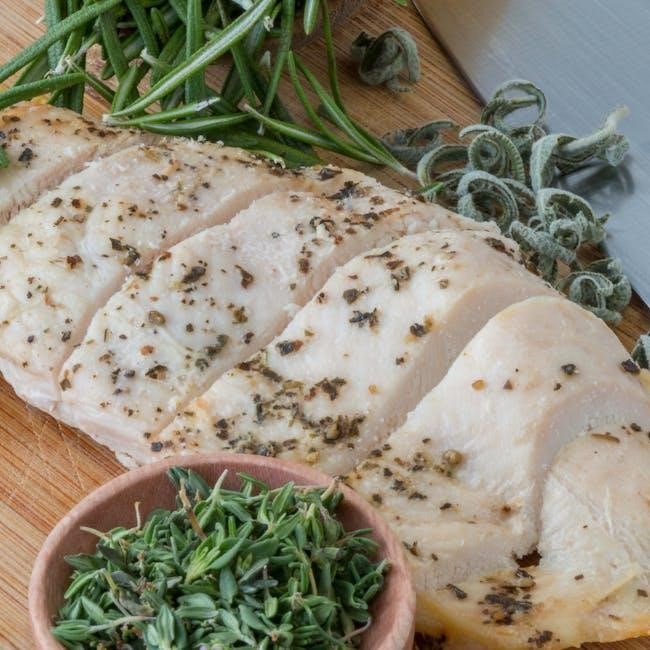
Lean Bulk Meal Plan for Specific Goals
Customize your lean bulk meal plan based on weight, activity level, and muscle-building objectives․ Adjust calorie intake to support growth while maintaining leanness and definition․
7․1 Meal Plan for a 170-190 Pound Individual
A tailored meal plan for a 170-190 pound individual focuses on balanced macronutrients to support lean muscle growth․ Start with a high-protein breakfast, such as 3 eggs, 2 egg whites, and oatmeal․ Mid-morning, include a snack like Greek yogurt with berries and almonds․ Lunch should feature grilled chicken breast, quinoa, and steamed vegetables․ A mid-afternoon snack of cottage cheese or a protein shake is ideal․ Dinner includes lean ground turkey, sweet potatoes, and broccoli․ End with a pre-bed snack like casein protein and peanut butter․ Aim for 3,500-4,000 calories daily, with 170g protein, 400g carbs, and 70g fats․
7․2 Adjusting for Weight and Activity Level
Caloric and macronutrient needs vary based on weight, activity level, and metabolism․ Heavier individuals or those with higher energy expenditure may require more calories and carbohydrates to support growth․ Active individuals should increase protein and carb intake post-workout․ Monitor progress weekly and adjust portions or meal frequency as needed․ For example, add 250-500 calories or an extra protein shake for weight gain․ Tailor the plan to maintain a 0․5-0․75 lb weekly gain, ensuring balanced nutrition without excessive fat storage․ Adjustments should align with personal goals and physical responses․

Supplements for Lean Bulking
Supplements like whey protein, creatine, and fish oil support lean bulking by aiding muscle recovery, enhancing strength, and reducing inflammation․ Multivitamins ensure nutrient balance․
8․1 Whey Protein
Whey protein is a cornerstone of lean bulking, providing essential amino acids for muscle growth and recovery․ Opt for whey protein isolate for purity and minimal fat․ Consume 1-2 scoops post-workout and as a convenient snack to meet protein goals without excess calories․ It supports muscle synthesis, aids in recovery, and helps maintain a lean physique․ Pairing whey with oatmeal or whole foods enhances its effectiveness; Choose unflavored options to avoid added sugars and artificial ingredients, ensuring a clean source of protein for your lean bulk journey․
8․2 Creatine and Fish Oil
Creatine is a proven supplement for enhancing strength and endurance, supporting muscle growth during a lean bulk․ Take 5g daily, ideally before meals, to maximize muscle saturation and performance․ Fish oil provides essential omega-3 fatty acids, reducing inflammation and supporting heart health․ Aim for 2 capsules (1g of combined EPA and DHA) with breakfast․ These supplements complement a lean bulk diet by optimizing recovery and overall well-being without adding unnecessary calories or fat․
8․3 Multivitamins
Multivitamins are essential for filling nutritional gaps in a lean bulk diet, ensuring adequate intake of vitamins and minerals․ They support overall health, muscle function, and recovery, which are crucial during a bulking phase․ A daily multivitamin helps maintain energy levels and prevents deficiencies that could hinder progress․ Take 1 tablet with breakfast to complement your meal plan and support immune function․ While they don’t replace whole foods, multivitamins are a practical addition to a well-structured lean bulk regimen․
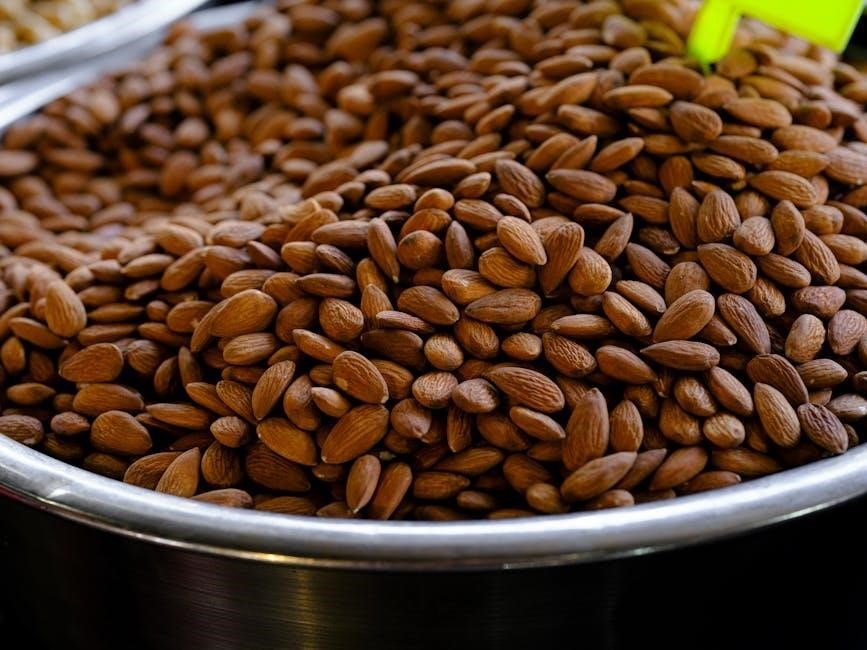
Avoiding Common Mistakes
Overeating, neglecting macronutrient balance, and inconsistent meal schedules are common pitfalls․ Avoid excessive calorie intake to prevent fat gain and ensure steady muscle growth․
9․1 Overeating and Excessive Caloric Intake
Overeating and consuming excessive calories, even from healthy sources, can lead to rapid fat gain, undermining lean bulking goals․ While a caloric surplus is necessary for muscle growth, it should be modest, typically 250-500 calories above maintenance․ Exceeding this range often results in unnecessary fat accumulation․ To avoid this, track your daily intake and stick to your planned surplus․ Additionally, focus on nutrient-dense foods rather than calorie-dense ones․ This balance ensures steady muscle growth while maintaining a lean physique․ Consistency and portion control are key to avoiding excessive fat gain during a lean bulk․
9․2 Neglecting Macronutrient Balance
Neglecting macronutrient balance can hinder progress in a lean bulk․ Overconsumption of carbohydrates or fats without adequate protein can lead to excessive fat gain and insufficient muscle growth․ Conversely, too much protein without enough carbs or fats can strain metabolism and reduce energy levels․ A balanced approach ensures optimal muscle synthesis and energy production․ Aim for a ratio of 25-30% protein, 40-50% carbohydrates, and 20-30% fats․ This balance supports muscle growth while maintaining overall health and preventing fat accumulation during the bulking phase․
9․3 Inconsistent Eating Schedule
Inconsistent eating schedules can disrupt metabolic balance, leading to poor nutrient distribution and suboptimal muscle growth․ Irregular meal timing may cause overeating or undereating, affecting progress․ Maintaining a structured schedule ensures stable energy levels and supports muscle recovery․ Aim to space meals evenly every 2-4 hours to keep metabolism active and prevent excessive hunger․ Consistency helps regulate digestion, maintain focus, and avoid metabolic slowdowns, ultimately supporting lean bulking goals effectively․
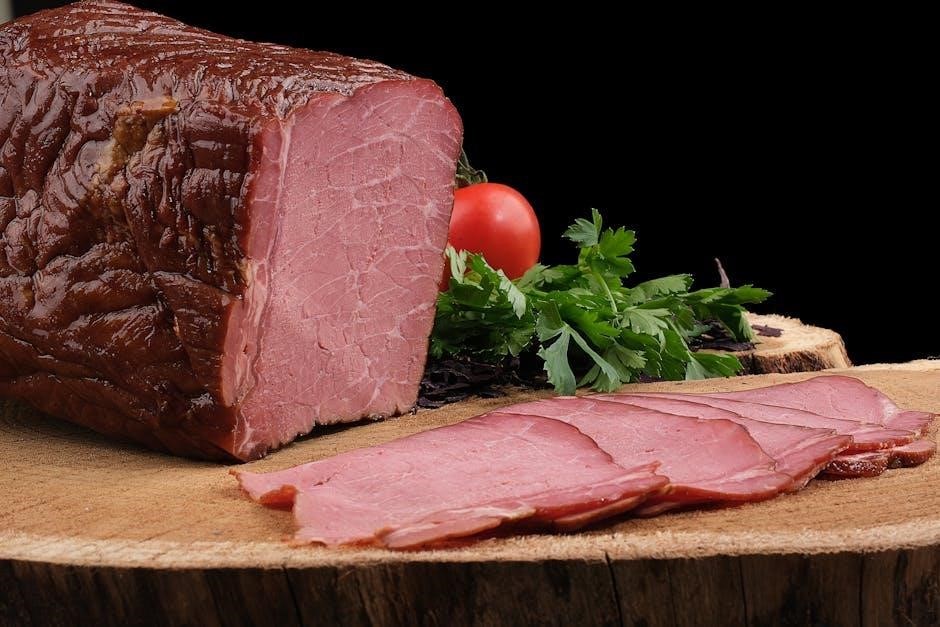
Tracking Progress
Regularly monitor weight, body fat percentage, and progress photos to ensure lean muscle gain․ Adjust the meal plan based on weekly measurements to maintain optimal results․
10․1 Weekly Weight Measurements
Tracking weight weekly helps monitor progress and ensure a steady gain of 0․5-0․75 pounds per week for men and 1-2 pounds per month for women․ This supports lean muscle growth without excessive fat․ Use a reliable scale and consistent timing to get accurate readings․ Adjust calorie intake if gains are too slow or rapid, ensuring alignment with your lean bulking goals․ Consistency in measurement and data analysis is key to maintaining a balanced and effective bulking strategy․
10․2 Monitoring Body Fat Percentage
Tracking body fat percentage ensures muscle growth without excessive fat storage․ Use methods like skinfold calipers or DEXA scans for accurate measurements․ Aim to maintain a body fat percentage between 8-15% for men and 16-23% for women․ Measure monthly to assess progress and adjust your lean bulk meal plan if fat gain exceeds muscle growth․ This helps maintain a lean, defined physique while bulking, ensuring sustainable muscle development and overall health․ Regular monitoring prevents unwanted fat accumulation and keeps you on track with your fitness goals․
10․3 Adjusting the Meal Plan as Needed
Regularly assess your progress and adjust your lean bulk meal plan to meet your goals․ If weight gain is too slow, increase caloric intake by 5-10%․ Conversely, if fat gain exceeds muscle growth, slightly reduce calories․ Monitor macronutrient ratios and ensure protein intake remains high to support muscle synthesis․ Adjust meal frequency or portion sizes based on activity levels and progress․ Stay flexible and tweak the plan as needed to maintain a balance between muscle gain and fat control, ensuring sustainable results over time․
Lean bulking requires a balanced approach to nutrition and training․ By following a structured meal plan and staying consistent, you can achieve a lean, muscular physique effectively․
11․1 Summary of Key Points
A lean bulk meal plan focuses on gaining muscle while minimizing fat․ It involves consuming a caloric surplus with balanced macronutrients, regular meals, and nutrient-dense foods․ Protein, carbs, and healthy fats are essential for muscle growth and energy․ Consistency in training and nutrition maximizes results, while tracking progress ensures adjustments are made as needed․ Patience and dedication are crucial for achieving a lean, muscular physique over time․
11․2 Final Tips for Success
Stay patient and consistent with your lean bulk meal plan, as muscle growth takes time․ Track progress weekly and adjust your diet or training as needed․ Focus on whole, nutrient-dense foods to avoid excessive fat gain․ Stay disciplined but allow flexibility for occasional treats to maintain motivation․ Prioritize sleep and recovery to support muscle growth․ Lastly, consult a nutritionist or trainer for personalized advice to ensure your plan aligns with your goals and lifestyle․
